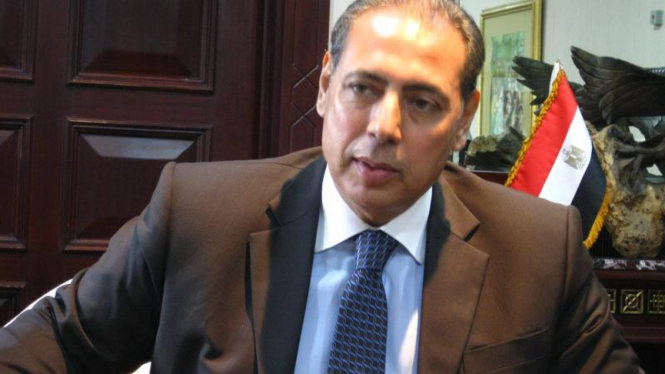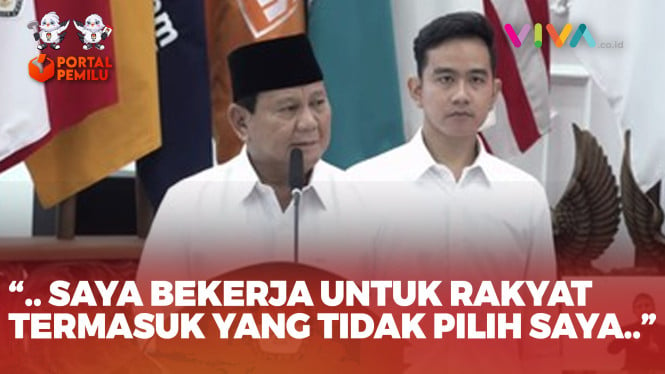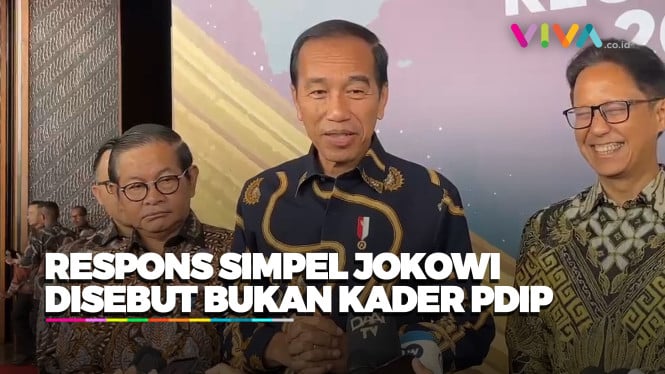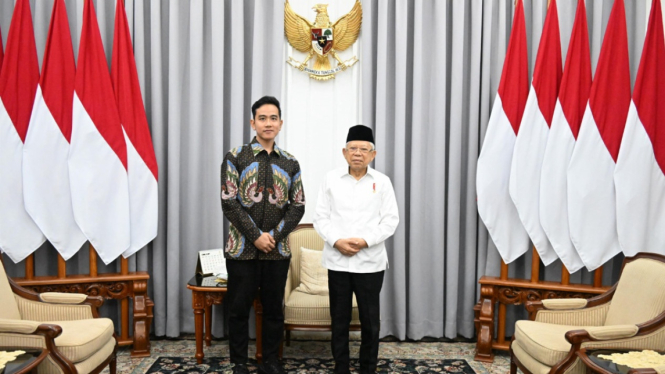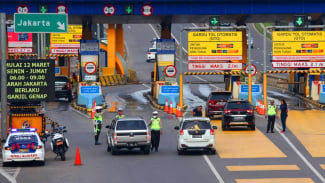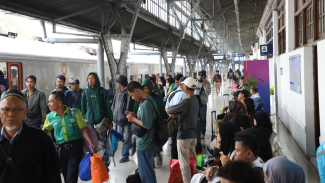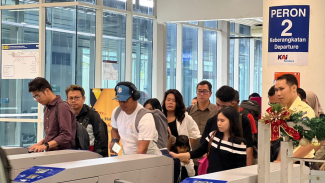- VIVAnews / Denny Armandhanu
VIVAnews - Far away from home, people at the Egyptian Embassy in Jakarta were anxiously watching on the television a massive demonstration involving millions of their fellow citizens all over the country on Tuesday, 1 February 2011. Over the last few days the mass protests against President Hosni Mubarak and his regime have claimed many casualties and economic losses.
"Egypt is in harsh time," Ambassador Ahmed El Kewaisny said referring to the crisis in his country. According to the Egyptian ambassador, who has been working in Indonesia since 2009, this popular movement is merely a "surge of expression" driven by young people who want rapid change in their country that unfortunately, in some cases, turned into violence.
Speaking at his embassy, El Kewaisny explained VIVAnews the Egyptian government’s position over the turmoil in his country. He also described how the crisis would give some impacts to the bilateral relationship between Egypt and Indonesia. Here are excerpts of the interview.
Many people in Egypt think that this political upheaval was triggered by the inability of the President Hosni Mubarak's regime to respond the economic crisis. What is the Egyptian government position over this upheaval?
First of all, I do not agree with you calling the situation in Egypt as upheaval or Uprising. We call it a surge of expression.
The movement is not solely because of economic problems, unemployment or the other, but there is a very strong demand for political reform.
Actually the economic situation in our country, just like with your country, is going quite well. The economic growth is relatively similar between the two countries. Last year, our economic growth was 5.3 percent and our unemployment rate is relatively lower than other countries, including Tunisia.
Today, President Mubarak and his government are trying their best to achieve higher economic growth in order to reduce the unemployment rate. He himself has a program for job creation and encourages foreign investment.
But now there are political demands. People demand for change and they hope to have a new government. This demand is so strong among the young people. About 40 percent of Egyptians are under 26 year old, which means our country has many productive people.
These young people are now living in their own era, in the internet era, social media like Twitter, Facebook and well equipped with electronic devices. They want rapid change.
So, many young people have gone to the streets to voice their opinion as well as their demands: large-scale reforms in the economic and political sectors.
Does the Egyptian government think that this wave of protests is much influenced by the revolution in Tunisia?
In this era of globalisation, we now look like living in a small village. Nothing can be hidden. Everything must be transparent. Let us not forget when the U.S. President Barack Obama gave a speech in Egypt [June 2009], he voiced a jargon of "change." The public welcomed his speech. So change is inevitable.
What happened in Tunisia proves that people can make change. In Egypt the people also can make change. People have right to voice for a peaceful change. Some people want to overthrow a regime, but it is not as easy as imagined.
How to respond to the demand of the protesters, which is to ask President Mubarak to step down from the power?
The government is doing the best to accommodate all demands. People demand that the government should be transparent and open. But there are stages that must be passed and discussed. I do not know whether the current administration can meet the expectations.
However, do not forget that President Mubarak will be approaching the end of his presidency. We will hold the presidential election in the coming September and at the same time Mubarak will be no longer a president.
Does this mean that Mubarak will be no longer running as a candidate for the next presidential election?
We do not know about it yet and I did not say that. That decision is not up to President Mubarak himself but it is up to the National Democratic Party. The party will hold a general meeting to determine who will be nominated by the party to become a candidate for the coming election.
[According to the latest development, 1 February 2011, Mubarak said that he would not resign until his term ends in September this year. However, the 82-year-old leader pledged that he will no longer run as a candidate for the upcoming general election - Editor]
The Indonesian people pay attention to the crisis in Egypt. As a good neighbour ,what can Indonesia do to support Egypt in this turmoil?
The relationship between the two nations has been unique, because we are brothers. The Indonesian people therefore should be able to support and deeply understand what is happening in Egypt. Egypt is in harsh time.
In Egypt, some people demonstrated their expression in extreme ways that might turn the peaceful protest into violent, so it needs the intervention of security forces. That is why the situation might bring some casualties.
I remind you that the hard time being experienced by Egypt is similar to that once faced by Indonesia at the end of the President Suharto’s era. That does not mean that the result would be the same because each state has its own nature and characteristic.
Like a number of other governments, Indonesia is now evacuating its citizens from Egypt due to security considerations. Does Egypt fully understand the Indonesia’s decision and how does your government respond?
A few days ago I spoke with Foreign Minister Mr. Marty Natalegawa after he had a briefing with the President of Indonesia. He asked the Egyptian government to accommodate the request of evacuating approximately six thousand Indonesian nationals, mostly women and children.
I fully cooperate with the request and I therefore called the authorities in Egypt. The Government of Indonesia, as a fellow brother, also hoped that the request was not interpreted negatively by us. This evacuation policy is solely to ensure the safety of Indonesian citizens.
They decided to charter some aircrafts to pick up Indonesian citizens who wish to be evacuated.
The Indonesian government is only doing its job, which is protecting its citizens everywhere. We understand, respect and support that decision.
Recently I got a call from Mr Hamzah Thayeb (the Director General for Asia Pacific and Africa from the Ministry of Foreign Affairs of Indonesia). He reported that the Indonesian Embassy in Cairo had a difficulty in transporting some citizens to the airport.
So, I called Cairo right away, asking the Army to send protection and to bring the people safely to the airport to get home. So we cooperate fully to support the request.
Has the situation in Egypt been so dangerous that foreign citizens, including those from Indonesia, should be evacuated?
In my personal opinion, there is no need to evacuate all Indonesian citizens. You have to ask me why. It because that the citizens of Indonesia who live and study in Egypt are not like other foreigners. They are not like the Italians or the Americans.
Indonesian citizens who are living in Egypt feel that our country has been their second home. Long time ago, even before the two governments established a bilateral relationship, many Indonesian people studied and lived side by side with people in our country.
So do you think that Indonesian people in Egypt have been regarded as brothers instead as foreigners?
Let me give you an example. When the monetary crisis in 1997-1998 hit your country, many Indonesian students in Egypt were suffering financial problems. Their fund was cut off.
That was a big problem for them, how to survive in Egypt. So, people of Egypt along with the businessmen and the government took initiatives to fund the Indonesian students to continue their studies and to survive. So we have had strong historical ties. Let me remind you that Egypt was the first country recognizing the birth of the Republic of Indonesia in 1945.
So, if there are Indonesian citizens suffering in Egypt today, they share same problems with Egyptian people. All of them are difficult to move out at night because of the curfew and they also are experiencing food shortage.
Do you think the crisis is already hampering some bilateral programs between the two governments this year?
Yes. Our Commerce Minister is supposed to have a visit in Indonesia. However, he is no longer a member of the Cabinet [President Mubarak reshuffled the cabinet on January 31, 2011 - Editor].
In addition, Indonesian Trade Minister Mari Elka Pangestu, has a scheduled visit to Egypt in March to discuss a joint cooperation commission. However, we apparently have to reschedule the visit.
So there are some visits or things that we should discuss again with the Indonesian officials due to the reshuffle in the Egyptian Cabinet. But I am sure that the relationship between Egyptian and Indonesian officials has been going strong.

